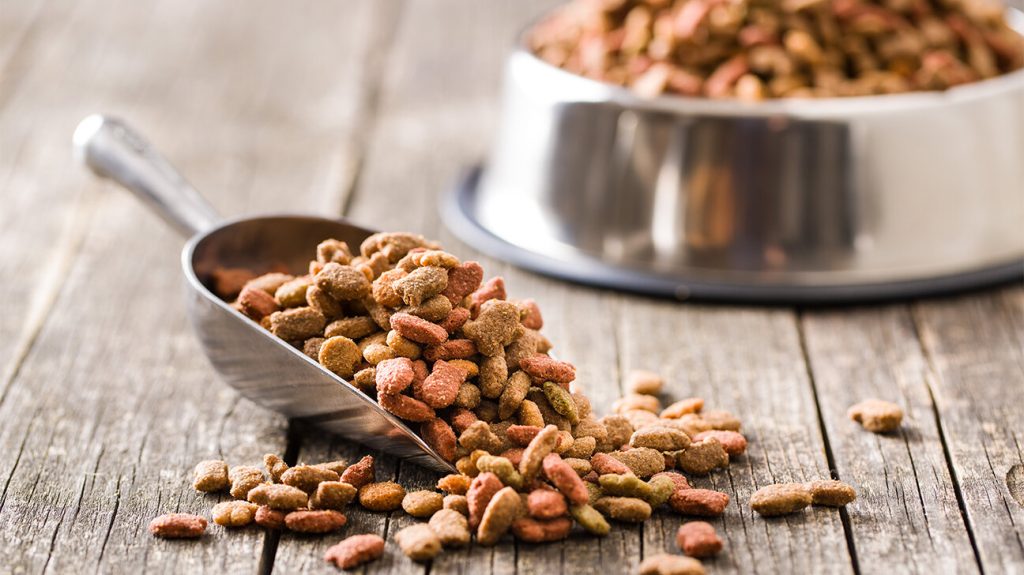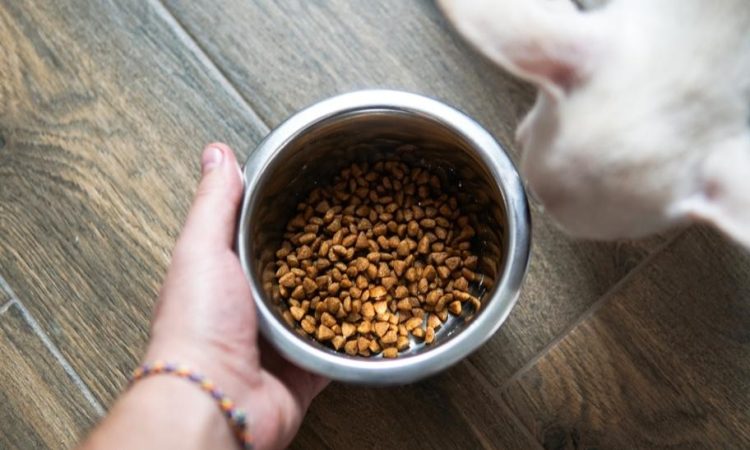Introduction:
Just like humans, pets can experience food intolerances, which may affect their overall health and well-being. Food intolerance in pets occurs when their digestive system is unable to properly process certain ingredients, leading to discomfort and potential health issues. This condition can manifest in a variety of symptoms, ranging from gastrointestinal upset to skin irritations and behavioral changes.
As pet owners, it is crucial to recognize the signs of food intolerance and take appropriate steps to modify their pet’s diet to improve their quality of life. But how can you tell if your pet is suffering from food intolerance? And what steps should you take to adjust their feeding plan accordingly? In this article, we will guide you through the signs of food intolerance in pets and offer practical advice on how to adjust their feeding regimen to ensure they remain healthy and comfortable.
1. What is Food Intolerance in Pets?
Food intolerance is a non-immunological response to specific ingredients or food components that a pet’s digestive system struggles to process. Unlike food allergies, which involve the immune system and cause an immediate and often severe reaction, food intolerance typically leads to more subtle, chronic symptoms that develop over time.
Food intolerances can be triggered by a variety of factors, including certain proteins, carbohydrates, fats, or additives in the food. In some cases, the intolerance may stem from an imbalance in the gut microbiome, insufficient digestive enzymes, or an inability to process certain food components effectively.
2. Common Signs of Food Intolerance in Pets
Recognizing the signs of food intolerance in pets can be tricky, as symptoms often overlap with other conditions. However, there are a few common indicators that pet owners should watch out for:
a. Gastrointestinal Issues
Gastrointestinal upset is one of the most common symptoms of food intolerance in pets. This can include:
- Vomiting: Pets may vomit shortly after eating certain foods.
- Diarrhea: Loose stools or diarrhea can occur as the body attempts to rid itself of irritants in the food.
- Constipation: On the opposite end, some pets may experience difficulty passing stools.
- Flatulence: Excessive gas or bloating can occur, especially after eating a certain food ingredient.
These digestive issues are often signs that the pet’s body is unable to properly break down or absorb a particular component of their diet.
b. Skin and Coat Problems
Food intolerances can also manifest through skin irritations, itching, and changes in the pet’s coat. Common signs include:
- Itchy Skin: Pets may develop itching, redness, or inflammation, particularly around the ears, paws, or face.
- Hot Spots: Chronic itching can lead to the development of hot spots, which are painful, raw areas on the skin.
- Dull or Flaky Coat: A food intolerance may result in a lackluster, dry coat or excessive shedding.
Skin issues can be a sign that the food is causing an inflammatory response or that the pet is lacking essential nutrients from their diet.
c. Behavioral Changes
Some pets may exhibit behavioral changes when they experience food intolerance, such as:
- Lethargy: Pets may seem more tired or less active than usual.
- Aggression or Irritability: Discomfort caused by food intolerance can make pets feel irritable or even aggressive.
- Increased Thirst or Urination: Some pets may drink more water or urinate more frequently as a response to gastrointestinal upset.
While these symptoms can also be associated with other health conditions, a change in behavior can be an important sign that something is wrong with their diet.
d. Ear Infections and Inflammation
Pets suffering from food intolerances may develop recurrent ear infections or inflammation in the ears. This is often accompanied by itching, redness, and discharge, which can be caused by an inflammatory response in the body.

3. How to Diagnose Food Intolerance in Pets
Diagnosing food intolerance can be challenging, as many of the symptoms overlap with other health issues. The best approach is to work closely with your veterinarian to rule out other possible causes and identify the exact food ingredient causing the problem.
a. Veterinary Consultation
A visit to the veterinarian is crucial if you suspect your pet has a food intolerance. The vet will begin by taking a full medical history and conducting a physical examination to rule out other health problems.
b. Elimination Diet
The most effective way to diagnose food intolerance is through an elimination diet. This process involves removing common food ingredients (such as chicken, beef, grains, or dairy) from your pet’s diet for several weeks, and then gradually reintroducing them one by one. By observing your pet’s response to each ingredient, you can pinpoint which food is causing the intolerance.
- Step 1: Remove all suspected allergens from your pet’s diet, typically by switching to a novel protein or limited-ingredient food.
- Step 2: Monitor your pet for any improvement in symptoms.
- Step 3: Reintroduce one ingredient at a time to see if symptoms reappear.
The elimination diet is a systematic process, and it can take several weeks to see conclusive results. Your veterinarian may also recommend conducting blood tests or stool analysis to rule out other possible causes of the symptoms.
c. Food Trials and Testing
Some veterinarians may recommend specialized blood tests or food sensitivity testing to help identify potential food intolerances. These tests measure the pet’s response to various ingredients, which can provide insight into which foods may be problematic. However, food trials and elimination diets remain the most reliable way to diagnose food intolerance.
4. Adjusting the Feeding Plan for Pets with Food Intolerance
Once food intolerance has been diagnosed, the next step is adjusting your pet’s diet to alleviate their symptoms and promote overall health. Here are some steps you can take to adjust their feeding plan:
a. Switch to a Limited Ingredient Diet (LID)
Limited Ingredient Diets (LID) are formulated with a small number of carefully selected ingredients to reduce the likelihood of food intolerance. These diets typically feature a single animal protein and a single carbohydrate source. Common protein sources in LID foods include venison, duck, rabbit, or fish, while carbohydrates may come from sources like sweet potatoes or peas.
- Benefit: LID diets can help reduce the risk of food intolerances by limiting exposure to a wide range of ingredients that could trigger digestive upset.
- Transitioning: Gradually introduce the new LID food by mixing it with your pet’s current food over a period of 7-10 days to avoid gastrointestinal stress.
b. Choose Novel Proteins
If your pet has developed an intolerance to common proteins like chicken or beef, you may need to switch to a novel protein that they haven’t been exposed to before. Examples include lamb, kangaroo, rabbit, or venison. These proteins are less likely to trigger an immune response or food intolerance.
c. Consider a Hydrolyzed Protein Diet
Some pets with severe food intolerances benefit from a hydrolyzed protein diet. In this type of food, the protein is broken down into smaller fragments, making it easier for pets with sensitive digestive systems to tolerate.
- Benefit: Hydrolyzed proteins are highly digestible and less likely to cause an adverse reaction in pets with food intolerance.
d. Avoid Artificial Additives
Many commercial pet foods contain artificial additives, preservatives, and flavor enhancers, which can contribute to food intolerance. Choose foods that are free from artificial colors, flavors, and preservatives, as these ingredients can sometimes cause gastrointestinal upset or skin issues.
e. Consult Your Veterinarian for Supplementation
Depending on your pet’s specific needs, your veterinarian may recommend adding nutritional supplements to their diet to help support their digestive system and overall health. Supplements such as probiotics, digestive enzymes, or omega-3 fatty acids may be beneficial in improving digestion and reducing inflammation.
5. Monitor Your Pet’s Progress
Once you’ve made changes to your pet’s diet, it’s important to closely monitor their progress. Keep track of any symptoms or improvements in their condition, and schedule follow-up visits with your veterinarian to ensure the new feeding plan is working effectively. If symptoms persist or worsen, further adjustments to the diet may be necessary.
6. Conclusion
Food intolerance in pets can be frustrating for both pets and their owners. However, with careful observation, diagnosis, and dietary adjustments, it is possible to manage and alleviate the symptoms of food intolerance. By switching to a limited ingredient diet, using novel proteins, and avoiding artificial additives, you can help your pet feel more comfortable and improve their overall health.
If you suspect your pet has a food intolerance, consult with your veterinarian to determine the best course of action. With the right feeding plan and ongoing monitoring, your pet can lead a happy, healthy life, free from the discomfort of food-related issues.























































